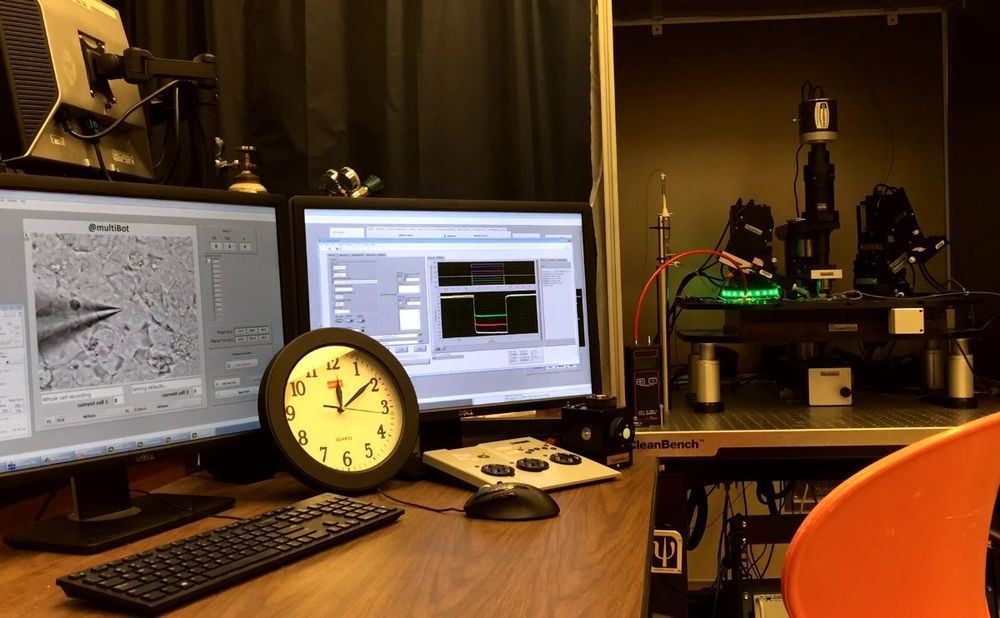Automatic system could speed up drug discovery by conducting time-consuming single-cell electrophysiology measurements without human supervision.



Animals of all shapes and sizes have whiskers of some sort. Cats and dogs and rodents have them. Seals have them too. Some birds have them, as do insects and fish. Whiskers have shown up across such a diversity of animals because they’re an efficient and effective method of short range sensing. Besides just being able to detect objects that they come into direct contact with, whiskers can also sense fluid flows (like the speed and direction of moving air or water), and they work even if it’s dark or foggy or smoky.
While we’ve seen some research on whiskers before—I’m sure you remember the utterly adorable ShrewBot—there hasn’t been too much emphasis on adding whiskers to robots, likely because lidar and cameras offer more useful data at longer ranges. And that’s totally fine, if you can afford the lidar or the computing necessary to make adequate use of cameras. For very small, very cheap drones, investing in sophisticated sensing and computing may not make sense, especially if you’re only interested in simple behaviors like not crashing into stuff.
At ICRA last month, Pauline Pounds from the University of Queensland in Brisbane, Australia, demonstrated a new whisker sensing system for drones. The whiskers are tiny, cheap, and sensitive enough to detect air pressure from objects even before they make physical contact.

Scientists have found a genetic mutation that cranks up someone’s pain tolerance to the superhuman level.
New research describes an Italian family with a rare gene that turns down their pain sensitivity and might offer clues in the development of pain treatments, particularly those who experience chronic pain. The six members of this family, who are from three different generations, have “a distinctive pain response that has not been identified in any other people,” University College London explained. The low-pain condition is called congenital analgesia and has been connected to a couple of other genetic mutations as well, but the studied family has a unique set of symptoms.
“The members of this family can burn themselves or experience … bone fractures without feeling any pain,” lead study author James Cox said in the university statement. “Their nerves are all there, they’re just not working how they should be. We’re working to gain a better understanding of exactly why they don’t feel much pain.”

Age is a leading risk factor for a number of conditions such as heart disease, cancer, and Alzheimer’s disease among others, such conditions make a real need for development of anti-aging therapies urgent. Salk Institute researchers may have developed a new gene therapy to help decelerate the aging process, as published in the journal Nature Medicine.
CRISPR-Cas9 genome editing therapy has been shown by the Salk Institute team to suppress the accelerated aging observed in mice with Hutchinson-Gilford Progeria syndrome; and provided insight into the molecular pathways involved in accelerated aging, and how to reduce toxic proteins via gene therapy.
Having an early onset and fast progression progeria is a severe form of degenerative disorder caused by LMNA gene mutations; signs of accelerated aging include DNA damage, cardiac dysfunction, and dramatically shortened lifespan. LMNA genes produce lamin A and lamin C inside a cell, progeria shifts production of lamin A to progerin which is a toxic shortened form of lamin A that accumulates with age and becomes exacerbated with the condition.

Doctors in London have used sound waves to successfully operate deep inside the brain.
They treated a man from Cornwall who suffered from uncontrollable tremors in his right hand.
The ultrasound machine Exablate Neuro, is produced by Insightec, a technology firm based in Israel. Their graphic explains how it works.

Taiga Motors is one of the rare companies working to bring to market an all-electric snowmobile, which is actually a segment of transportation that desperately needs cleaner solutions.
The startup is unveiling today its new lineup of electric snowmobiles with some impressive specs.
With little to no standards and many two-stroke engines, current gas-powered snowmobiles are generally incredibly polluting – sometimes 50 times more polluting than an average car. People operate the machines to experience the great outdoors and it’s a shame to have to pollute your environment to do it.
